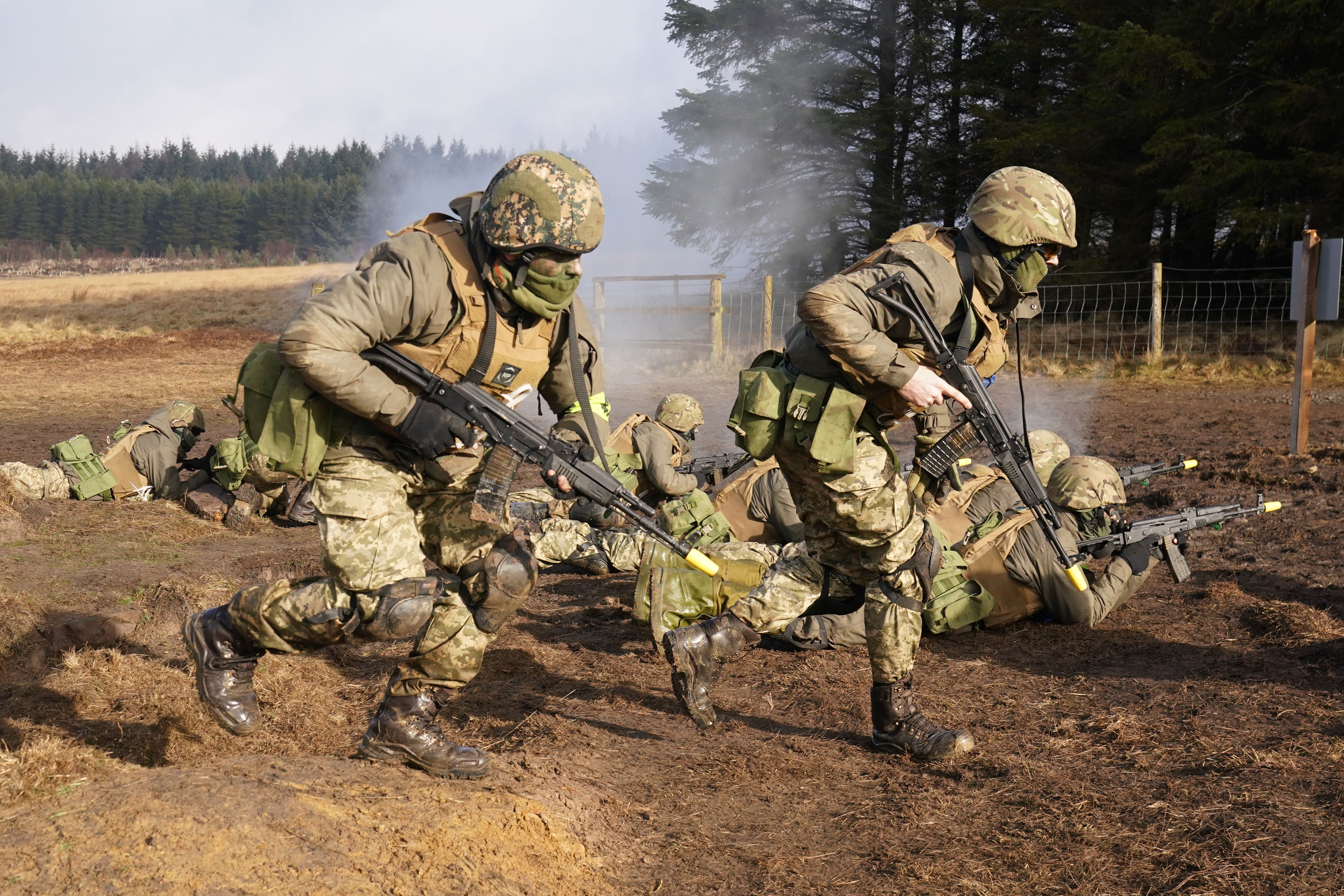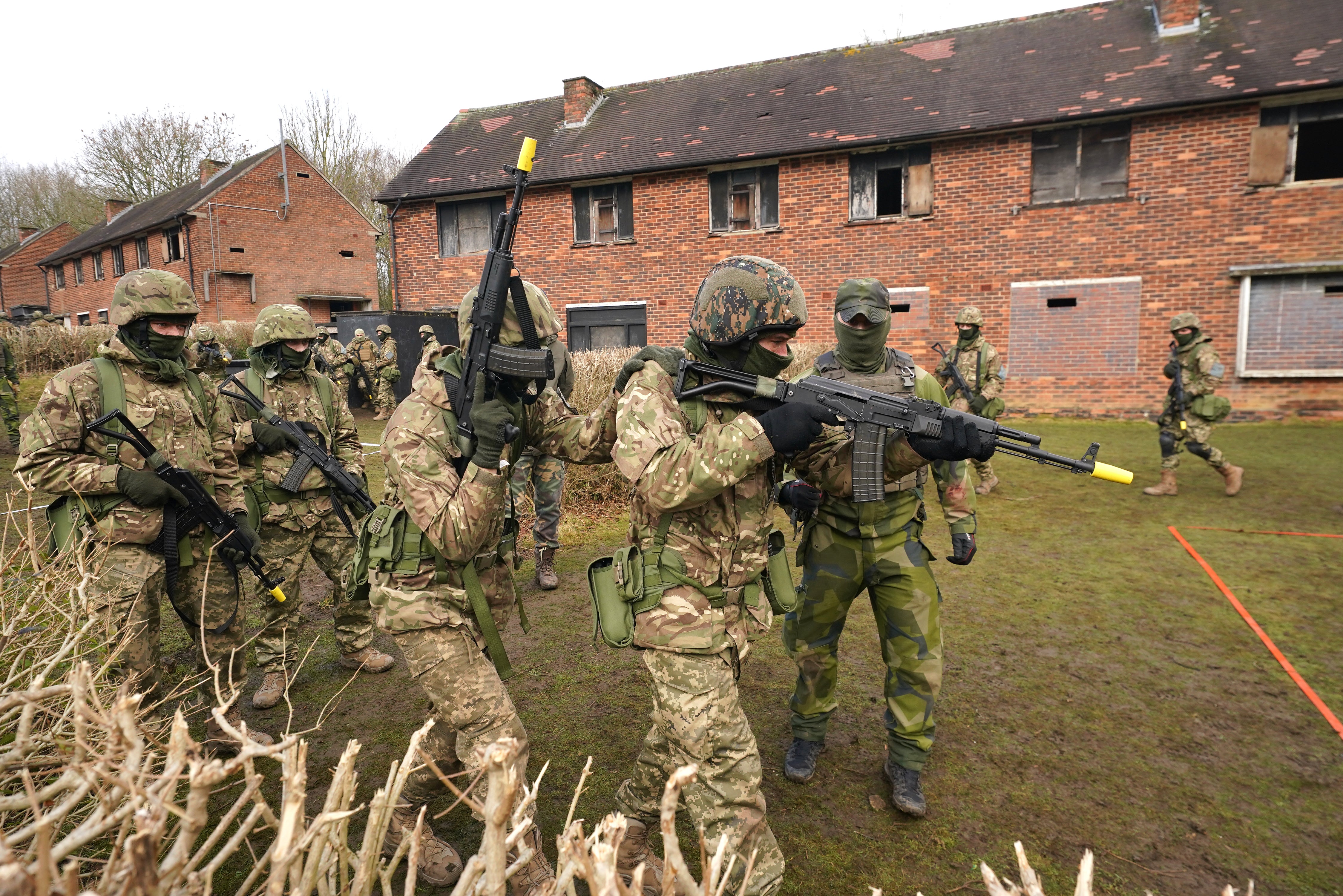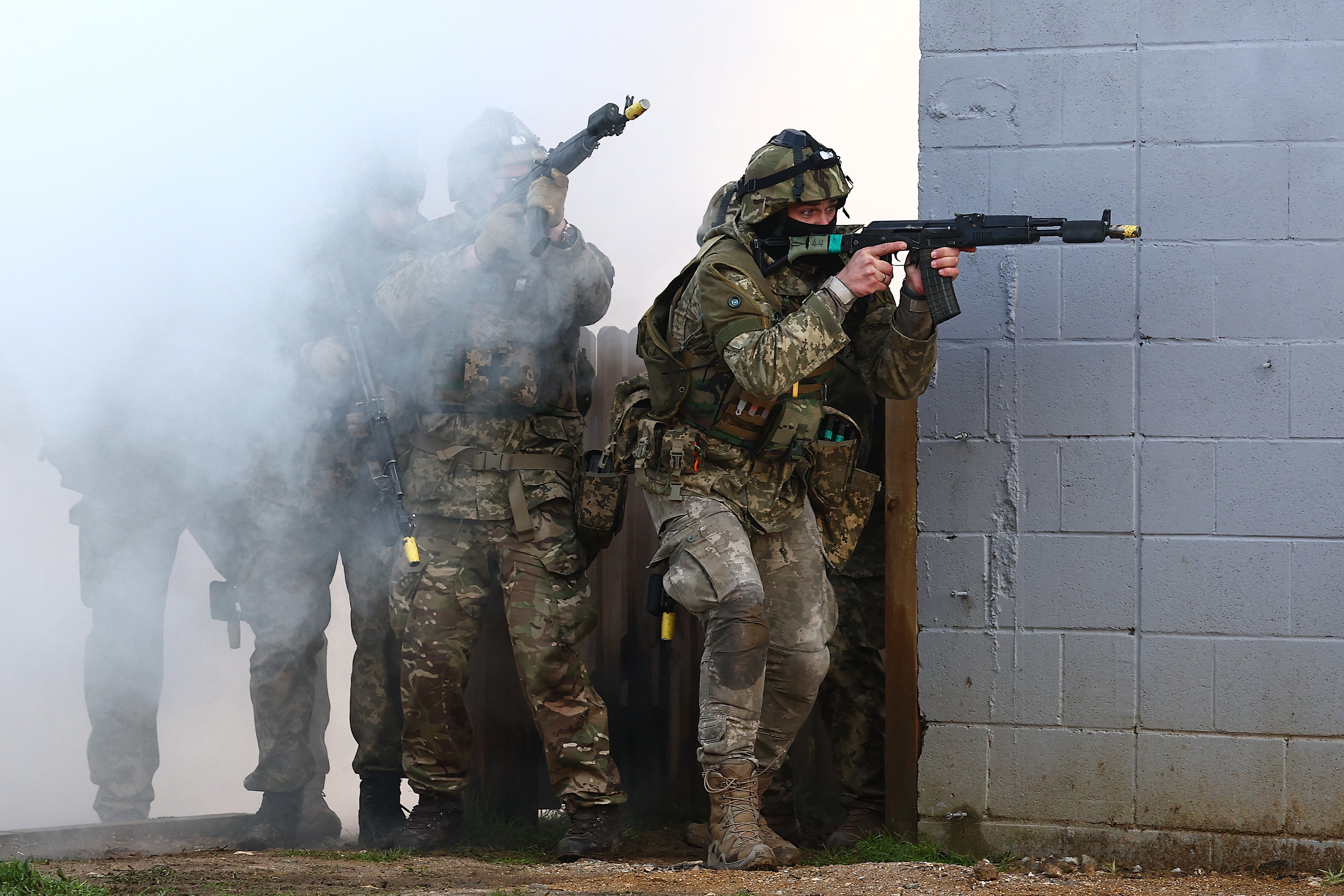Training Ukrainian troops ‘constrains’ British army’s own training, watchdog warns
Ministry of Defence defends courses as some Ukrainians criticise training

Your support helps us to tell the story
From reproductive rights to climate change to Big Tech, The Independent is on the ground when the story is developing. Whether it's investigating the financials of Elon Musk's pro-Trump PAC or producing our latest documentary, 'The A Word', which shines a light on the American women fighting for reproductive rights, we know how important it is to parse out the facts from the messaging.
At such a critical moment in US history, we need reporters on the ground. Your donation allows us to keep sending journalists to speak to both sides of the story.
The Independent is trusted by Americans across the entire political spectrum. And unlike many other quality news outlets, we choose not to lock Americans out of our reporting and analysis with paywalls. We believe quality journalism should be available to everyone, paid for by those who can afford it.
Your support makes all the difference.Training Ukrainian soldiers “constrains” the UK’s ability to train its own troops, a watchdog has warned.
A National Audit Office (NAO) investigation of British military support for Ukraine found a quarter of the srmy’s training estate was being used for Operation Interflex, the UK’s basic infantry training programme for Ukrainian recruits.
The use of facilities for Operation Interflex has meant British srmy units saw bids for time in training areas rejected eight times more often in 2023 than they were in 2019.
In its report published on Wednesday, the NAO said: “The MoD has acknowledged that Interflex will constrain the British army’s capacity to train its own soldiers.”
Another training programme for Ukrainian marines, Operation Interforge, had to be moved to the Netherlands earlier this year because “the use of training facilities in the UK was threatening to compromise the Royal Marines’ own training needs”, the NAO added.
An MoD spokesperson said: “All UK forces have access to the relevant training required to be held at readiness to protect the UK and meet our Nato commitments.
“But we welcome the NAO’s report, which recognises that Ukrainian troops are better prepared to defend their country from Russia’s illegal invasion thanks to the UK providing training.”

More than 45,000 Ukrainians have received training in the UK since Russia’s full-scale invasion began in February 2022, with 89 per cent of the most recent cohort telling the Ministry of Defence it left them better prepared for the battlefield.
But there have also been criticisms of the course from Ukrainians, the NAO said, particularly regarding the lack of training on countering and using drones because of UK military and civil aviation restrictions.
Some drone training is provided, and it is understood that the MoD is looking at expanding counter-drone training within the Operation Interflex course.
Last week, defence secretary John Healey announced that Operation Interflex would continue throughout 2025.
Gareth Davies, the head of the NAO, said: “As the Ministry of Defence plans its future support for Ukraine, it must continue to balance the UK’s strategic interests with maintaining the UK’s own military capabilities.
“This includes making sure there are appropriate stocks of equipment and sufficient training provision for UK forces.”

Since shortly before the outbreak of war, the UK has donated £171.5m of equipment from its own stockpiles on top of spending £2.4bn procuring new equipment for Kyiv.
But the cost of replenishing British stockpiles is set to outweigh the value of the donated equipment, with the MoD telling the NAO it expected to spend £2.71bn up to 2030-31.
The MoD said the discrepancy was because of the UK buying newer equipment, which in some cases is more advanced than the kit donated to Ukraine.
In total, the UK has committed £7.8bn in support for Ukraine up to March 2025, including both supplying military equipment and training Ukrainian soldiers, funded from the Treasury’s reserves rather than the MoD’s own budget.
The NAO investigation did not seek to evaluate the strategic case for supporting Ukraine or reach conclusions on value for money, but was intended only to set out the facts regarding what support was being provided.
Subscribe to Independent Premium to bookmark this article
Want to bookmark your favourite articles and stories to read or reference later? Start your Independent Premium subscription today.
Join our commenting forum
Join thought-provoking conversations, follow other Independent readers and see their replies
Comments